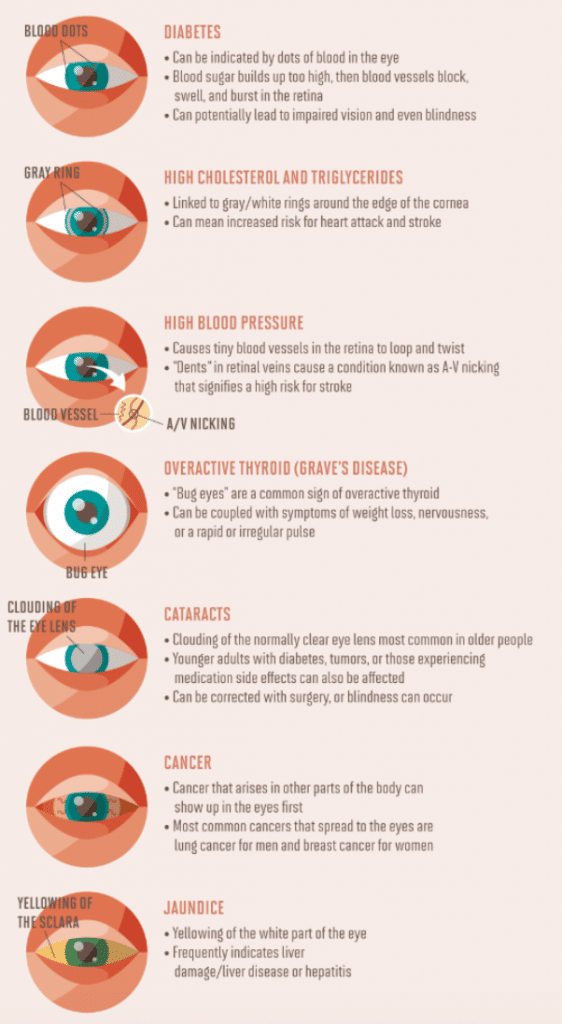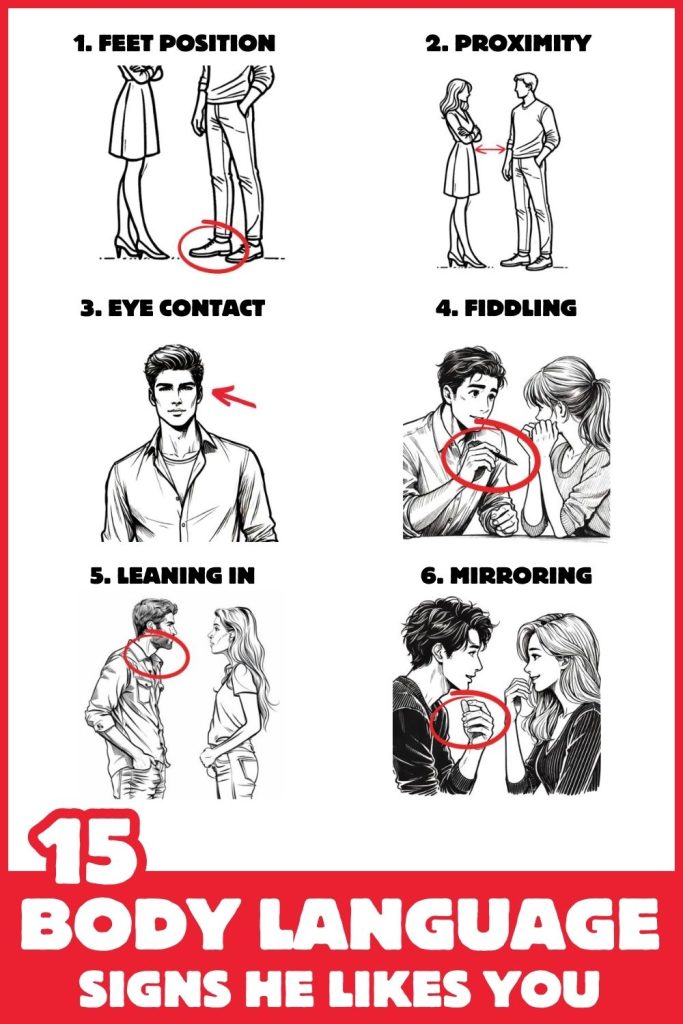Squinting Eyes Body Language
Ever wondered what squinting eyes say about a person’s body language? When someone squints their eyes, it’s like a secret code that reveals their thoughts and emotions. In fact, squinting eyes can speak volumes without saying a word. Let’s dive into the fascinating world of squinting eyes body language and unlock the hidden messages behind this intriguing behavior.
Did you know that squinting eyes can indicate suspicion or skepticism? When someone narrows their eyes, it’s like they’re putting on detective glasses, carefully observing and analyzing the situation. It’s a signal that they’re not easily swayed and need more convincing before they can fully trust what they see or hear. So, the next time you notice someone squinting their eyes, pay attention to the context and see if their skepticism is warranted.
On the flip side, squinting eyes can also convey warmth and genuine interest. When someone squints their eyes while smiling, it creates those cute little lines at the corners of their eyes called “crow’s feet.” This subtle yet endearing gesture shows that they’re fully engaged, enjoying the conversation, and genuinely interested in what you have to say. So, don’t be surprised if you find yourself drawn to someone with squinting eyes – they might just be signaling their fondness for you. Wow, who knew that a simple squint could convey so much? Let’s explore more about squinting eyes body language together.
Uncover the Secrets of Squinting Eyes in Body Language
Did you know that squinting eyes can reveal a lot about a person’s emotions? Understanding this nonverbal cue can give you insight into someone’s thoughts and intentions. Squinting eyes can indicate skepticism, concentration, or even deception. By observing other body language cues alongside squinting eyes, you can gain a deeper understanding of a person’s true feelings. Pay attention to eyebrow movements, facial expressions, and overall body posture to interpret the meaning behind squinting eyes. Master the art of decoding body language today!

The Intricate Details of Squinting Eyes Body Language
Squinting eyes body language is a fascinating aspect of nonverbal communication that often goes unnoticed. The subtle narrowing of the eyes can convey a wide range of emotions and intentions, providing valuable insights into a person’s thoughts and feelings. In this in-depth article, we will explore the various meanings behind squinting eyes body language, its cultural implications, and how to interpret it accurately in different contexts. Whether you are interested in understanding others better or enhancing your own communication skills, delving into the world of squinting eyes body language is sure to be enlightening.
The Power of Squinting Eyes in Communication
Squinting eyes body language can be a powerful tool for conveying emotions and intentions. Here, we will explore the different meanings behind squinting eyes and how they can be interpreted:
1. Squinting as a Sign of Suspicion or Distrust
When someone squints their eyes, it can indicate suspicion or a lack of trust. This narrowing of the eyes is often accompanied by furrowed brows, indicating that the person is scrutinizing something or someone closely. In these situations, it is essential to proceed with caution, as the person may be skeptical or guarded.
This body language is commonly observed during interrogations, negotiations, or when someone feels uncertain about someone’s motives. Understanding the underlying skepticism behind squinting eyes can help you adjust your approach and build trust through open and honest communication.
Squinting eyes body language, when combined with other nonverbal cues, can provide even more insight into a person’s thoughts and motivations. For example, if a person squints their eyes while crossing their arms and leaning away, it may indicate a strong negative reaction or disagreement.
2. Squinting as a Sign of Concentration
In some cases, squinting eyes body language is a reflection of intense concentration. When faced with a complex task or when trying to carefully analyze a situation, individuals may subconsciously narrow their eyes to focus more effectively.
This type of squinting is often accompanied by a furrowing of the brow and can be observed in various contexts, such as during exams, while playing sports, or when listening attentively. Recognizing this body language as a sign of deep concentration can help you adjust your communication style and offer support or space accordingly.
It’s important not to mistake this form of squinting for suspicion or disapproval. In such situations, it is crucial to provide encouragement and show understanding, as the person may be fully absorbed in their thoughts or work.
3. Squinting as a Sign of Discomfort or Pain
Squinting eyes body language can also convey physical discomfort or pain. When someone is experiencing bright light, dust, or an irritation in their eyes, they instinctively squint to protect their vision or minimize discomfort. Similarly, people in pain may squint their eyes as a natural response to the discomfort they are feeling.
It is important to be attentive to these cues and show empathy and support to those who exhibit signs of physical discomfort. Offering assistance or suggesting a change of environment, such as dimming the lights or providing eye drops, can greatly alleviate their discomfort and strengthen your rapport.
Squinting eyes body language is a complex and multifaceted aspect of nonverbal communication. By understanding the various meanings behind squinting eyes, you can decode the unspoken messages and enhance your understanding of others. Moreover, by being aware of your own squinting habits, you can ensure that your body language aligns with your intended message.
Decoding Squinting Eyes in Different Contexts
Squinting eyes body language can vary across different cultural and situational contexts. Here, we will explore how squinting eyes can be interpreted in specific scenarios:
1. Squinting Eyes in Romantic Interactions
In a romantic context, squinting eyes can take on a different meaning. When someone squints their eyes while looking at their partner, it can indicate affection or adoration. This squinting, often referred to as “love squints,” is a subconscious gesture that implies a deep emotional connection and a desire to focus solely on the person they are looking at.
Understanding this nonverbal cue can help strengthen romantic relationships and foster a deeper sense of intimacy. reciprocating squinting eyes body language can communicate your own affection and create a mutual bond of understanding and connection.
2. Squinting Eyes in Professional Settings
Interpreting squinting eyes body language in professional settings requires additional context and careful observation. In some cultures, squinting eyes during a conversation can be seen as a sign of respect and attentiveness. It signifies that the person is fully engaged and interested in what is being said.
However, in other contexts, squinting eyes can indicate skepticism or a critical mindset. Paired with other negative body language cues, such as crossed arms or a frown, it may suggest disagreement or a lack of trust. It is essential to consider the overall nonverbal communication when interpreting squinting eyes in professional settings.
3. Squinting Eyes in Social Situations
In social situations, squinting eyes can be interpreted differently depending on the circumstances and cultural norms. For example, in certain cultures, squinting eyes can be a sign of respect or politeness when listening to someone speak. It shows that the person is actively paying attention and fully engaged in the conversation.
However, it is crucial to consider individual differences and the overall body language of the person exhibiting this behavior. While squinting eyes may generally be associated with positive engagement, it is essential to look for other cues to ensure accurate interpretation.
Being attentive to the nuances of squinting eyes body language in different contexts can enhance your ability to understand others and improve your own nonverbal communication skills.
Tips for Accurate Interpretation and Effective Communication
Interpreting squinting eyes body language requires a careful balance of observation and context. Here are some tips to help you interpret and respond to squinting eyes effectively:
Squinting Eyes vs. Other Nonverbal Cues
When deciphering squinting eyes body language, it is crucial to consider other nonverbal cues that may accompany it. By analyzing the person’s facial expressions, body posture, and gestures, you can get a more accurate understanding of their thoughts and emotions.
For example, if someone is squinting their eyes but also smiling and leaning in, it may indicate that they are genuinely interested and engaged. However, if they are squinting their eyes and avoiding eye contact, it may suggest discomfort or disapproval.
Context is Key
Context plays a significant role in interpreting squinting eyes body language. The meaning behind squinting eyes can vary depending on the situation, culture, and individual differences.
Consider the setting, the relationship between the parties involved, and any cultural norms that may impact the interpretation. By taking these factors into account, you can derive a more accurate understanding of the underlying emotions and intentions.
Open Communication
If you are uncertain about the meaning behind someone’s squinting eyes, it is always best to encourage open communication. Ask open-ended questions and provide a safe space for the person to express their thoughts and feelings.
Active listening and empathy can help bridge any gaps in understanding and foster more meaningful connections. By actively seeking clarification, you can avoid misinterpretations and build stronger relationships.
Putting It into Practice
Squinting eyes body language is a subtle yet powerful tool of nonverbal communication. By mastering the art of interpretation and being mindful of your own nonverbal cues, you can improve your ability to understand others and enhance your communication skills.
Remember to observe squinting eyes in conjunction with other nonverbal cues, consider the context, and encourage open communication. By doing so, you can navigate social, professional, and romantic interactions with greater awareness and sensitivity.
So, the next time you notice someone squinting their eyes, take a moment to reflect on the possible meanings behind their body language. You might just uncover a whole new dimension of communication that will enrich your relationships and interactions.
Key Takeaways: Squinting Eyes Body Language
- Squinting eyes can indicate suspicion or disbelief.
- It may also signal concentration or trying to see something clearly.
- Squinting eyes can show that a person is evaluating or analyzing information.
- It can be a sign of discomfort or dislike towards someone or something.
- Pay attention to the context and other body language cues to interpret squinting eyes correctly.
Frequently Asked Questions
In this section, we will answer some common questions related to the body language of squinting eyes.
Why do people squint their eyes?
People squint their eyes for various reasons. One common reason is to enhance focus and concentration. When we squint, we narrow our field of vision, reducing the amount of light that enters our eyes. This can help improve our ability to see distant objects or small details more clearly. Squinting can also serve as a protective mechanism when exposed to bright light or a foreign object. By narrowing our eyes, we shield them from excessive light or potential harm.
Additionally, squinting can be an unconscious response to feelings of skepticism, doubt, or mistrust. It is often seen when someone is trying to evaluate or scrutinize something more closely. Squinting can create a sense of intensity and alertness, conveying seriousness or deep thought. However, it’s important to note that the interpretation of squinting can vary depending on the context and individual.
What does squinting your eyes suggest in body language?
Squinting one’s eyes in body language can convey different meanings, depending on the situation and accompanying cues. In general, squinting can indicate suspicion, skepticism, or critical thinking. It may imply that the person is unsure or questioning what they are observing or hearing. However, it’s important to consider other nonverbal signals and the context to accurately interpret the meaning behind the squinting.
If someone is squinting during a conversation, it could signify that they are finding the topic or information presented to be perplexing or challenging to comprehend. It may also suggest that they are hiding their true feelings or thoughts, creating a barrier between themselves and the other person. However, it’s essential to approach the interpretation of squinting with caution and consider other body language cues for a more comprehensive understanding.
Can squinting be a sign of attraction or interest?
While squinting is not typically associated with attraction or interest in body language, it is essential to consider other accompanying cues. In general, when someone is attracted to or interested in someone or something, their eyes tend to widen rather than squint. Wide eyes are often perceived as a sign of openness, excitement, or genuine curiosity.
However, there can be exceptions, and it’s crucial to analyze other nonverbal signals alongside squinting. For example, if someone is squinting their eyes while maintaining positive facial expressions, such as smiling or leaning in closer, it could suggest a genuine interest or intrigue. It’s important to remember that body language is complex, and interpreting gestures requires considering a combination of signals.
How can I tell if someone is squinting due to a medical issue?
If you notice someone frequently squinting their eyes, it may be worth considering if they are experiencing vision problems or other medical issues. Squinting can be a natural response to poor eyesight, as it can help temporarily improve focus or filter out excessive light. It is essential to observe other signs that may suggest a medical issue, such as frequent headaches or difficulty seeing objects at a distance or close up.
If you suspect someone may be having problems with their eyesight, it is recommended to approach the topic with sensitivity and empathy. Encourage them to consult an eye specialist or schedule an eye examination. Remember, only a professional can accurately diagnose and provide appropriate treatment for any medical issues.
How can I improve my body language when I squint my eyes?
If you tend to squint your eyes unintentionally or as a habit, you can work on improving your body language in this regard. One approach is to practice relaxation techniques that can help reduce tension around the eye area. These techniques may include gentle eye exercises, blinking exercises, or applying a warm compress to relax the eye muscles.
Another tactic is to be mindful of your surroundings and adjust lighting conditions accordingly. If you find yourself squinting due to bright lights, consider using sunglasses or adjusting overhead lighting to create a more comfortable environment. Lastly, pay attention to your overall body language and strive to make confident eye contact with others. By maintaining a relaxed and open posture, you can enhance your nonverbal communication and create a positive impression.

Summary
When someone squints their eyes, it can mean different things depending on the situation. In some cases, squinting can indicate that a person is trying to see something better or that they are deep in thought. However, it can also be a sign of suspicion or anger. It’s important to pay attention to other body language cues to understand the true meaning behind squinting.
If someone squints their eyes while talking to you, it could mean they are skeptical or unsure of what you are saying. On the other hand, if they squint while smiling, it’s often a genuine expression of happiness. Remember to consider the context and other nonverbal signals to accurately interpret squinting eyes body language.

